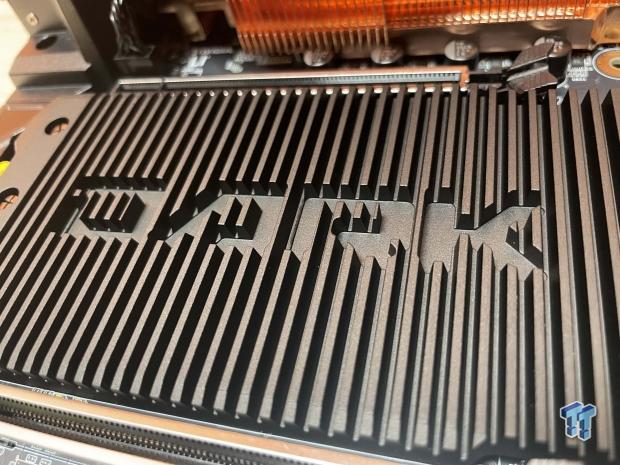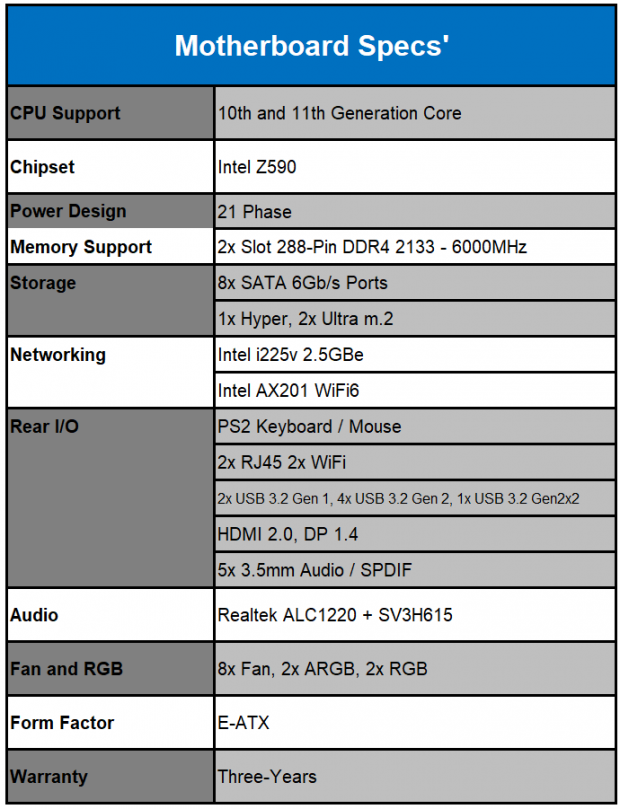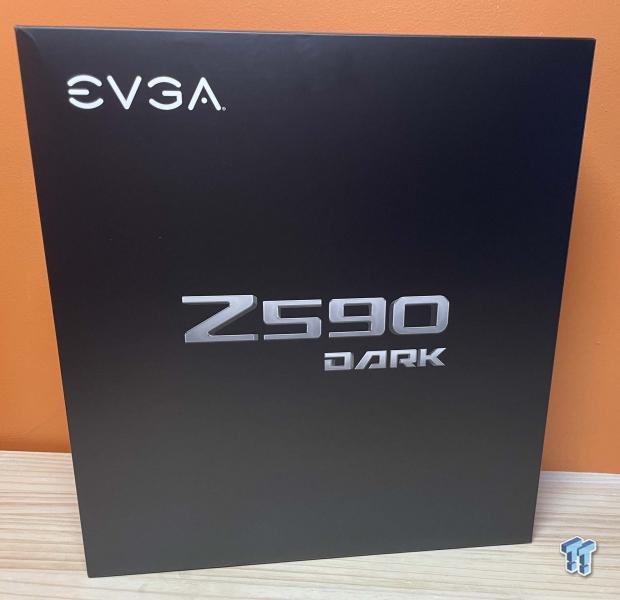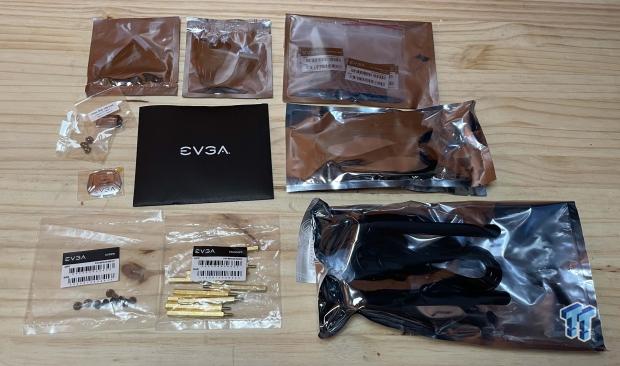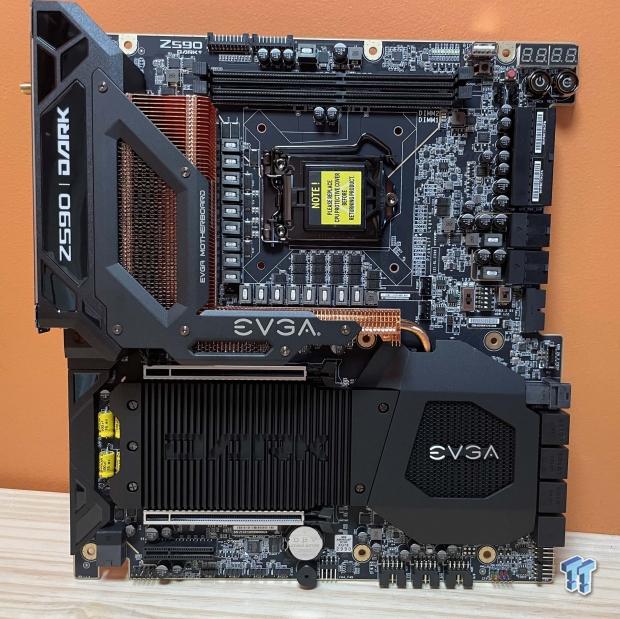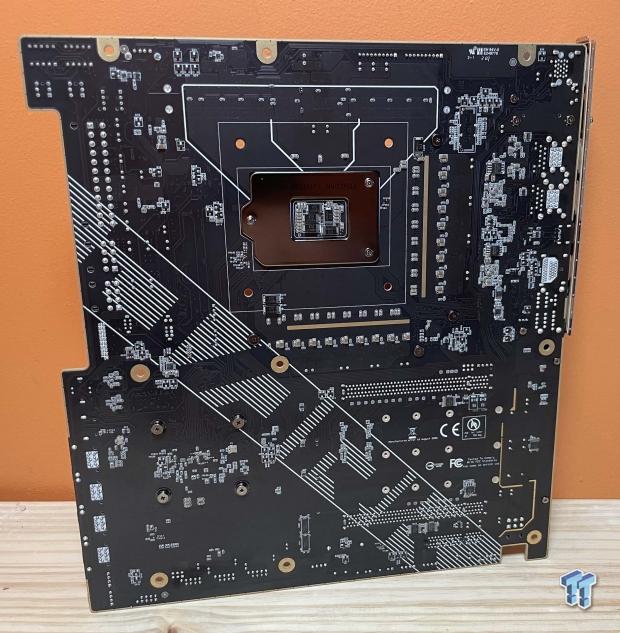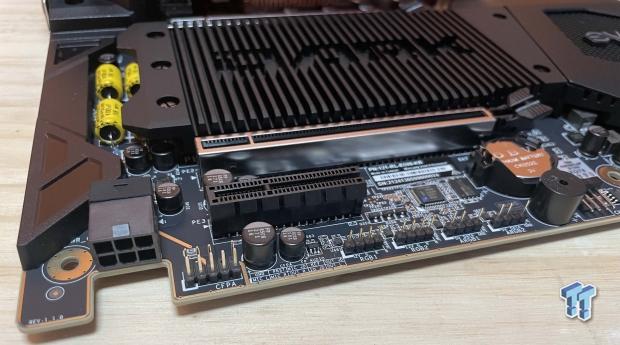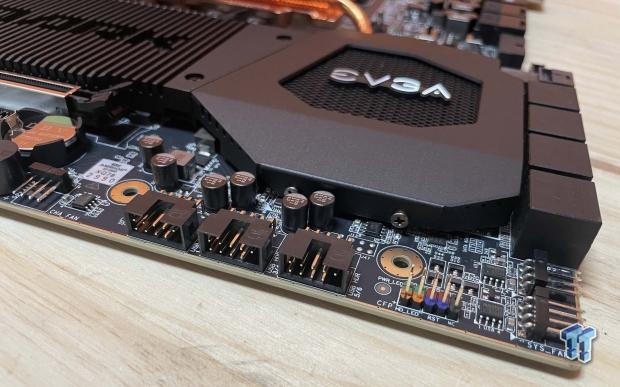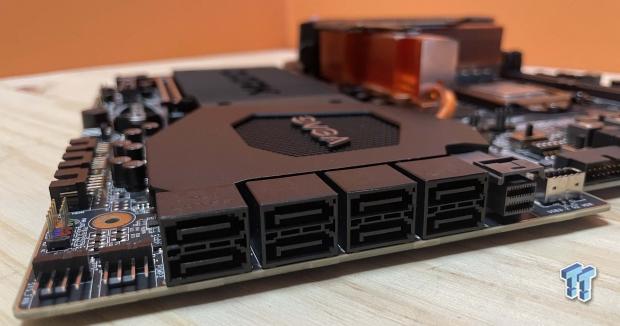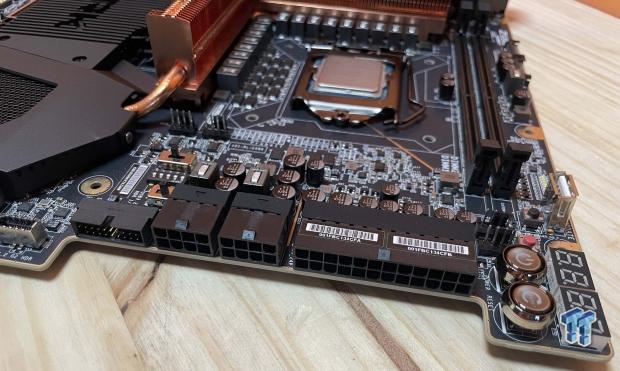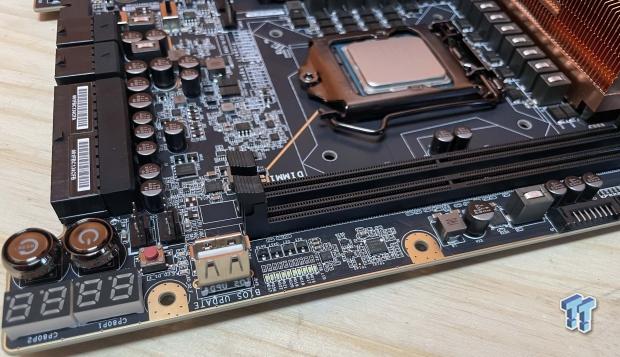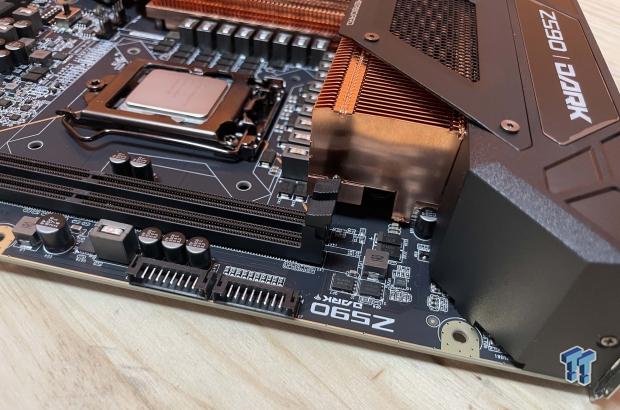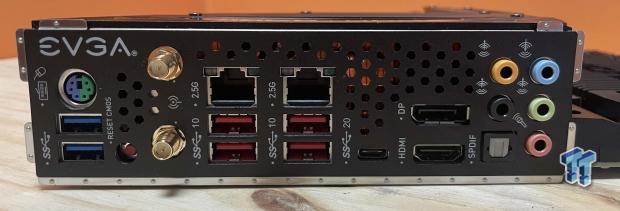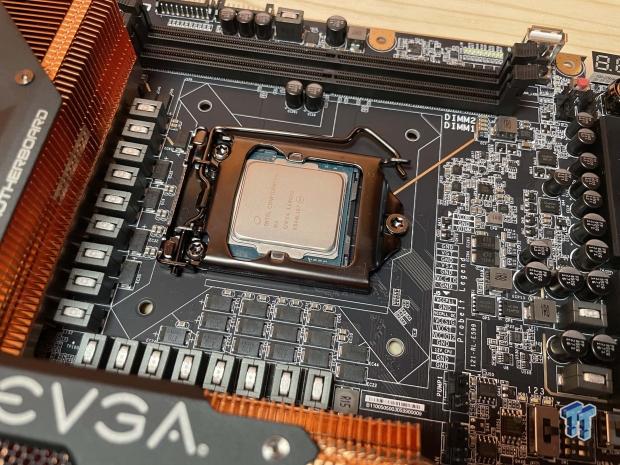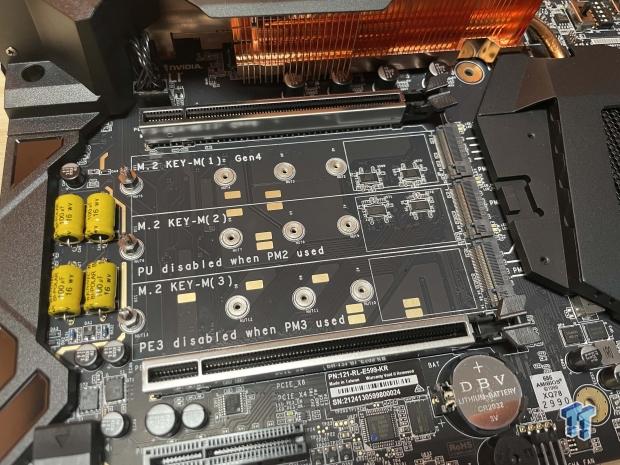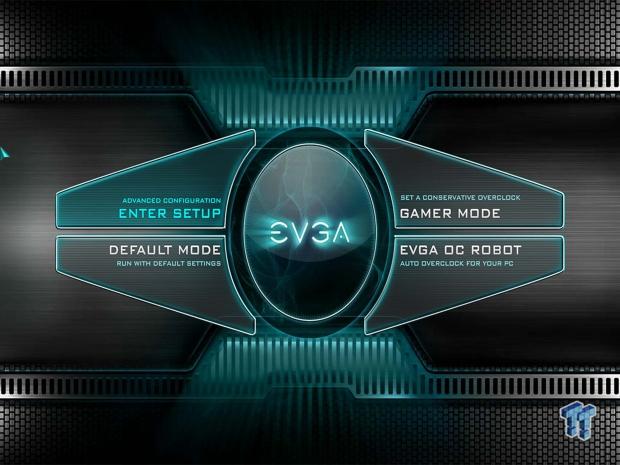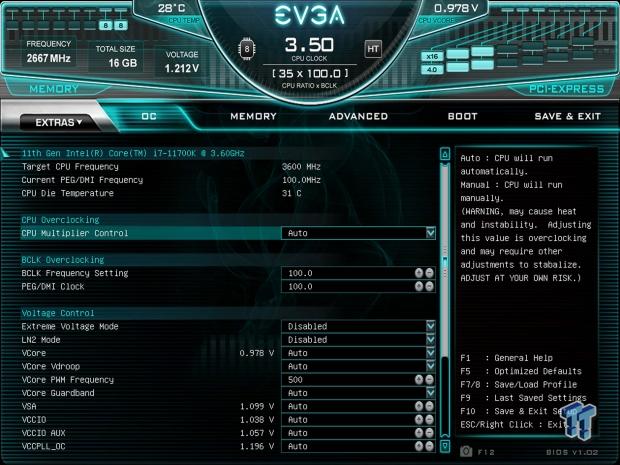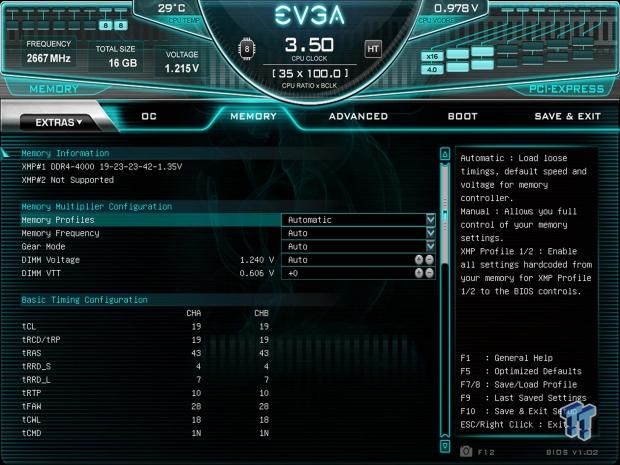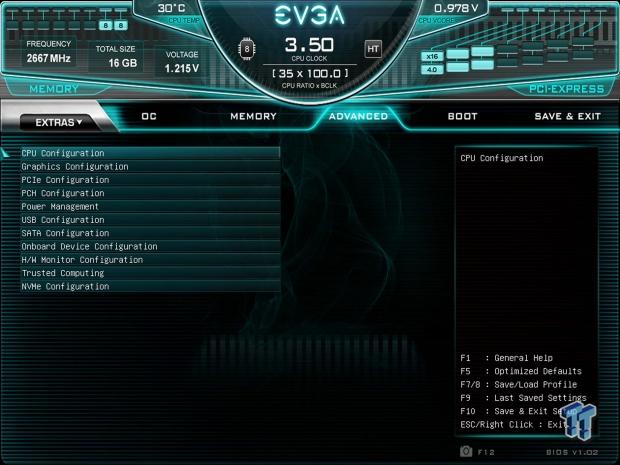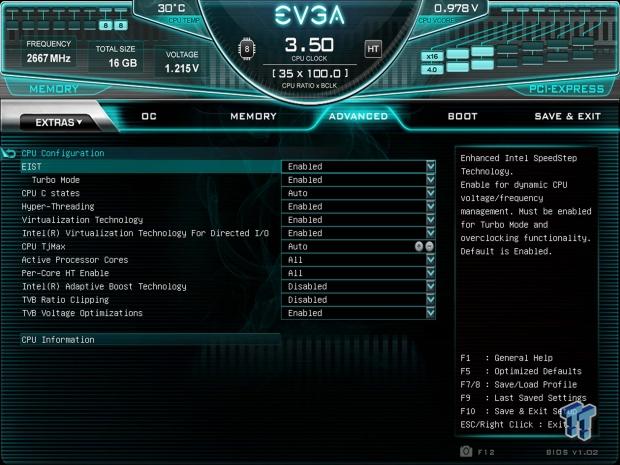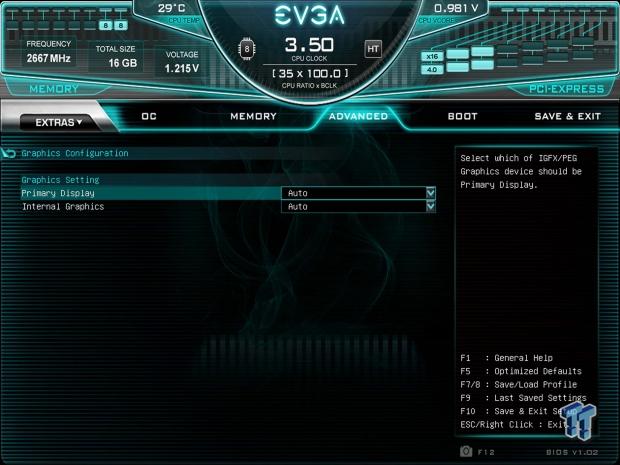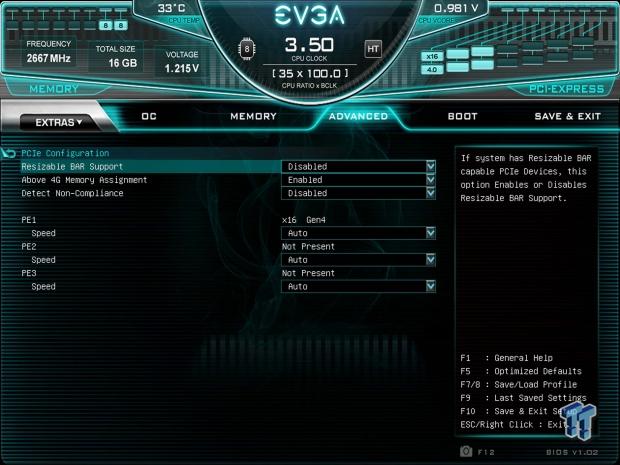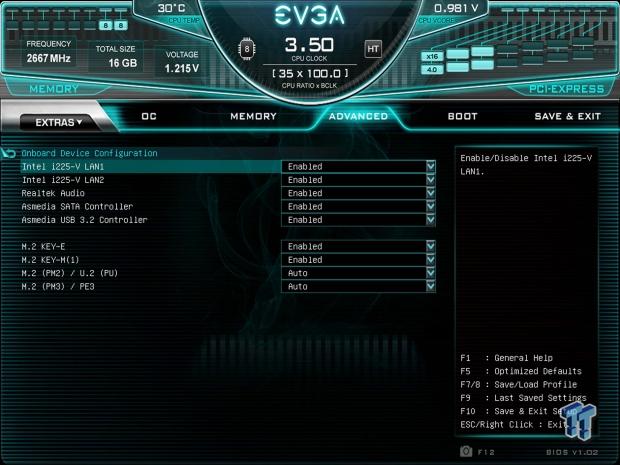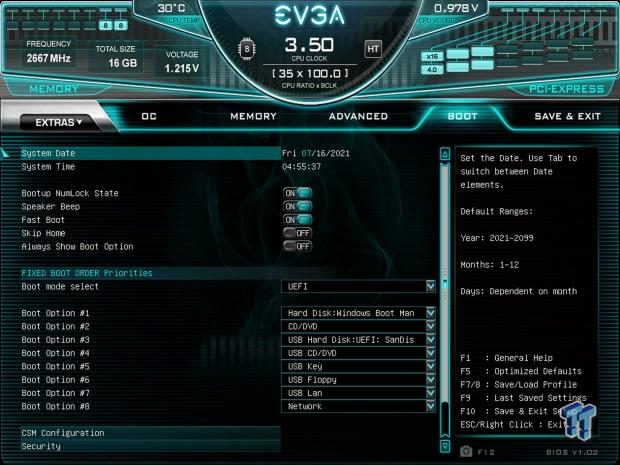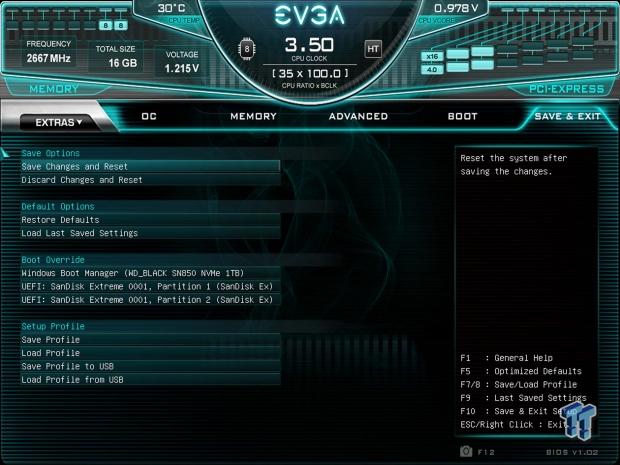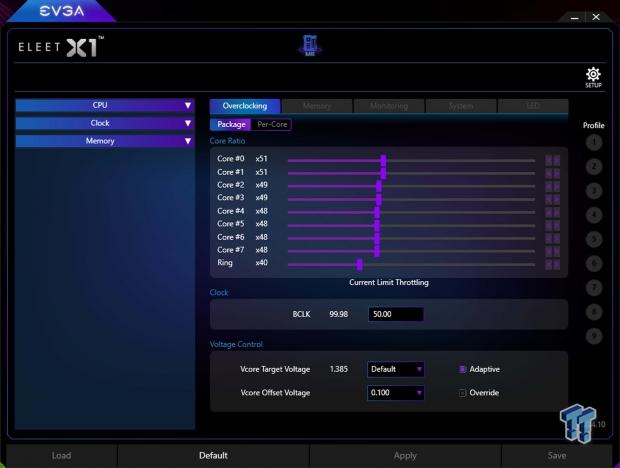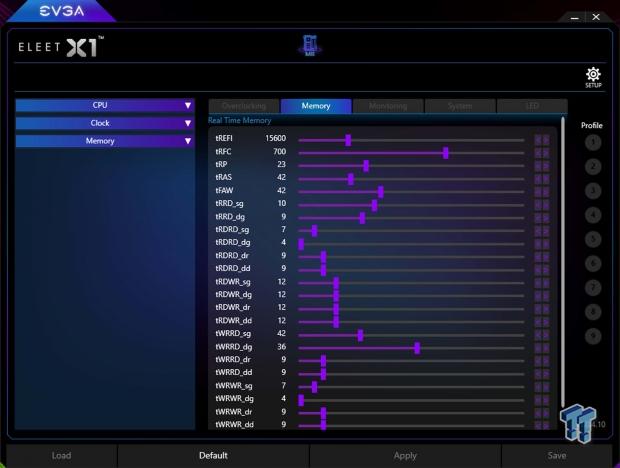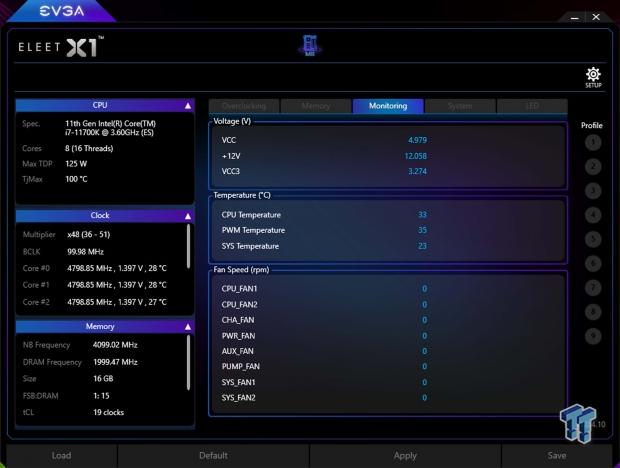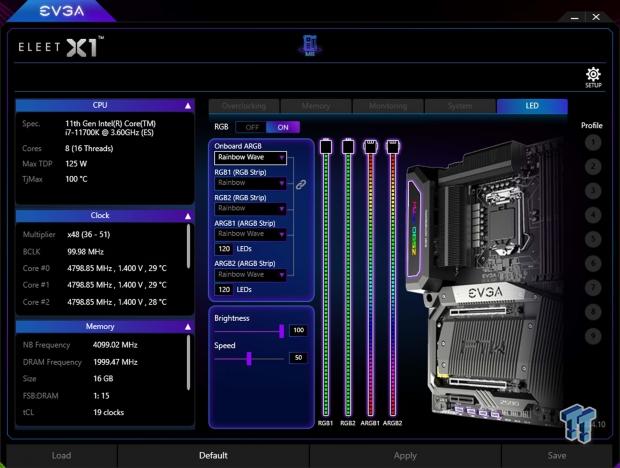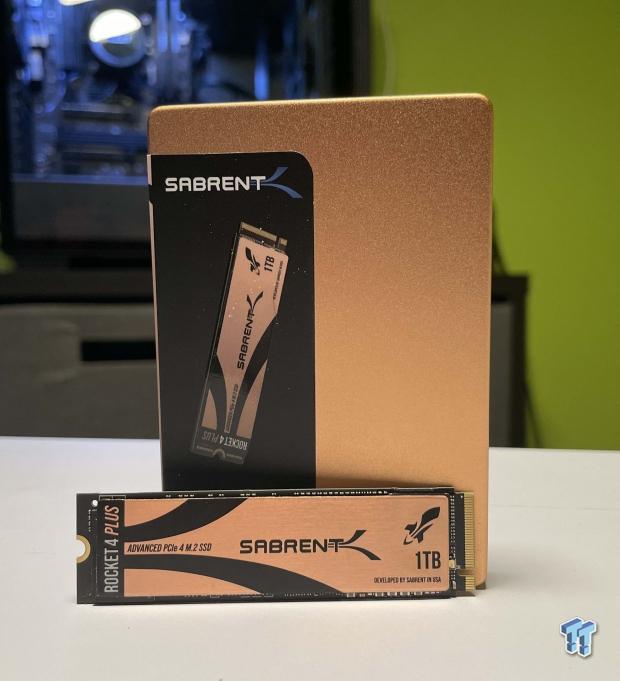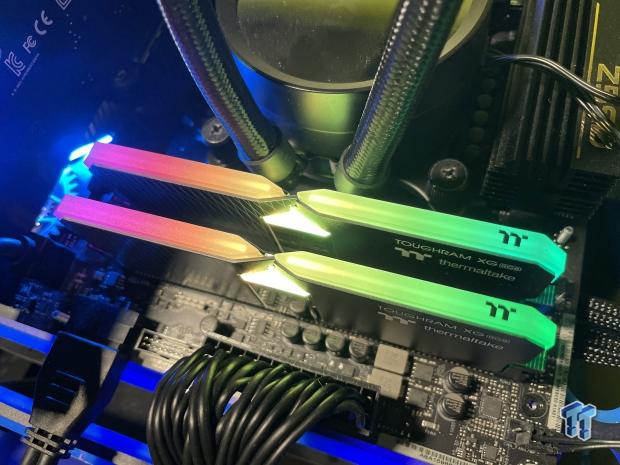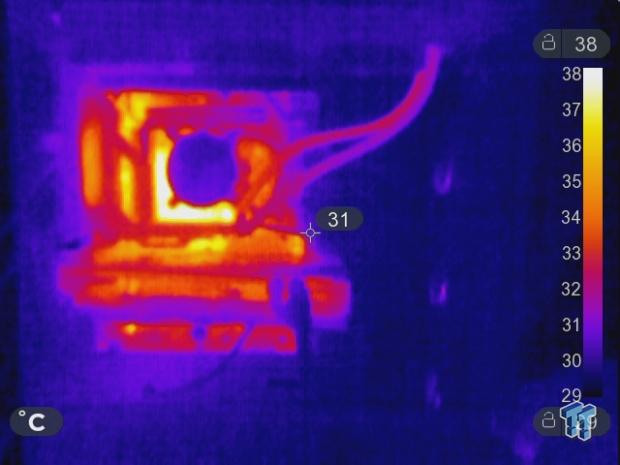

Introduction, Specifications, and Pricing
With EVGA's shortened Z590 lineup, the Dark represents their top-end platform. That is unless they decide to unveil a higher SKU such as a "Kingpin" edition in the near future, but I find that unlikely with 12th Gen Intel platforms right around the corner. Back to the Dark, the latest platform from EVGA ushers in some mighty specs for enthusiasts wanting to push their 11900K or any 11th Gen desktop CPU to the max; this includes a 21-phase power design alongside a much better set of connectivity options that include dual 2.5Gbe, USB 3.2 Gen2x2 and NVMe U.2.
The Z590 Dark will support 10th Gen CPUs as well, but for those wanting to get the most, 11th Gen is where it's at. As mentioned above, we have the 21 phase power design that uses smart power stages from Intersil, each capable of 90A. Additionally, being an enthusiast motherboard, the EVGA offers two DDR4 memory slots, max capacity 64GB with speeds ranging from JEDEC 2133MHz to 6000MHz+.
EVGA did not slack on connectivity adding eight SATA 6GB/s ports alongside NVMe U.2 and three M.2 while networking is handled by a pair of Intel i225v 2.5Gbe NICs, Wi-Fi is pushed through Intel AX210.
USB connectivity has been leveled up as well, seven ports on the rear I/O and another six available through internal headers leaving audio to wrap things up with a Realtek ALC1220 Nu audio setup with an SV3H615 headphone amp.
Pricing
The EVGA Z590 Dark carries an MSRP of $599.99 with a three-year warranty.

Packaging, Accessories, and Overview
Packaging and Accessories
Packaging is a simple, matte black box with EVGA and Dark branding.
The accessory kit is stacked and includes Wi-Fi antennas, SATA cables alongside voltage measurement cables and standoffs.
EVGA Z590 Dark Overview
The board is absolutely gorgeous, a fantastic mix of matte black and massive copper heat sink that cools the entire VRM and chipset with a heat pipe. The memory slots lay horizontal above the CPU sockets that have been turned as well, making room for EVGA to have the 24pin and 8pin power connections along the right side of the motherboard.
This is an E-ATX motherboard with PCB cutout for the power connections, no major ICs on the back of the board, and no doublers used.
Running around the board, the bottom offers a six-pin power connection for additional PCIe power, further down a line of RGB headers.
Down towards the end, we have a set of USB 2.0 headers and the front panel connection while just around the bend a set of fan headers.
Running up the right side, we have eight SATA connections and the U.2.
USB 3.2 Gen 2 header starts the image above, giving way to the USB 3.2 Gen 1 header and bank of power connections. Far right, we have the power and reset buttons and debug LEDs.
Across the top, we have a bank of startup LEDs next to the USB port for updating BIOS. Far-right is the header for voltage measurement.
Running around the board, the bottom houses the front panel audio under a cover.
Rear I/O offers a split PS2 header next to two USB 3.2 Gen 1. Further down, we have Wi-Fi, four 10Gbps USB 3.2 Gen 2, and a 20Gbps Gen 2x2. HDMI and DP round out the connections alongside 3.5mm audio.
PCB and Circuit Analysis
EVGA tipped the socket on its side and aligned the power stages to the left and below. These are Intersil 99390 stages, each handling 90A of current.
Pulling the heat sink off the chipset area, we have all three m.2 slots and the audio layout to the left.
UEFI, Software and Test System
UEFI
EVGA has done a remarkable job on its Z590 BIOS. The initial screen gives you several options, including Gamer Mose that set our 11700K at 5.1GHz. You can also choose OC Robot to have the board automatically overclock your CPU. Then you have default and advanced modes for those wanting to tune themselves.
BIOS layout is fantastic, the main menu offering all the information needed about the installed CPU, memory, and storage. The OC menu wastes no time letting you tune your CPU with extensive clock and voltage controls, the memory having its own tab to the right.
The advanced menu offers all the platform controls we are used to seeing, including power controls for the CPU, graphics configuration, and onboard devices like SATA, USB, and NVMe.
Motherboard Software
EVGA ELEET X1 is the software for the FTW; this includes overclocking controls for the CPU per core or per package.
Further controls are available for real-time memory control.
Monitoring is available for voltage, fan, and temperatures.
Last, we have RGB controls for each of the four headers and I/O plate.
Motherboard Testing Supporters
Sabrent supports our storage testing with the Rocket 4 Plus.
Thermaltake has come onboard with their Toughram XG for all Z590 reviews.
TweakTown Intel Motherboard Test System
Cinebench, Realbench and AIDA64
Cinebench R23
Cinebench is a long-standing render benchmark that has been heavily relied upon by both Intel and AMD to showcase their newest platforms during unveils. The benchmark has two tests, a single-core workload that will utilize one thread or 1T. There is also a multi-threaded test that uses all threads or nT of a tested CPU.
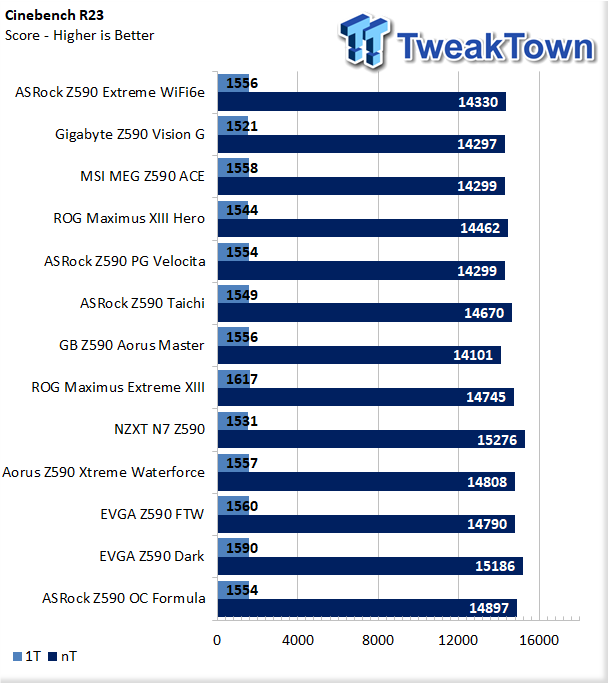
Single thread with the Z590 Dark produced a score of 1590. Multi-thread landed at 15186.
Realbench
Realbench uses both video and photo workloads to benchmark your CPU. We use all three workloads in this scenario.
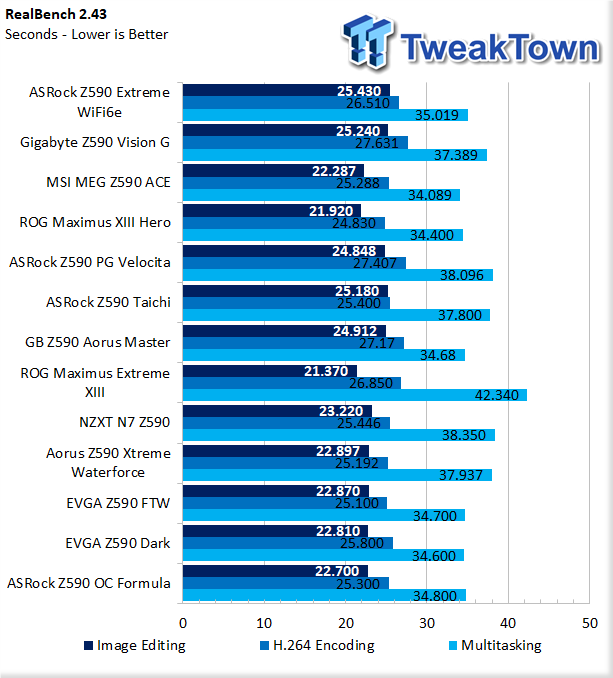
Realbench offers 22.8 seconds in Image Editing, 25.8 seconds in H.264 Encoding, and 34.6 seconds in multi-tasking.
AIDA64 Memory
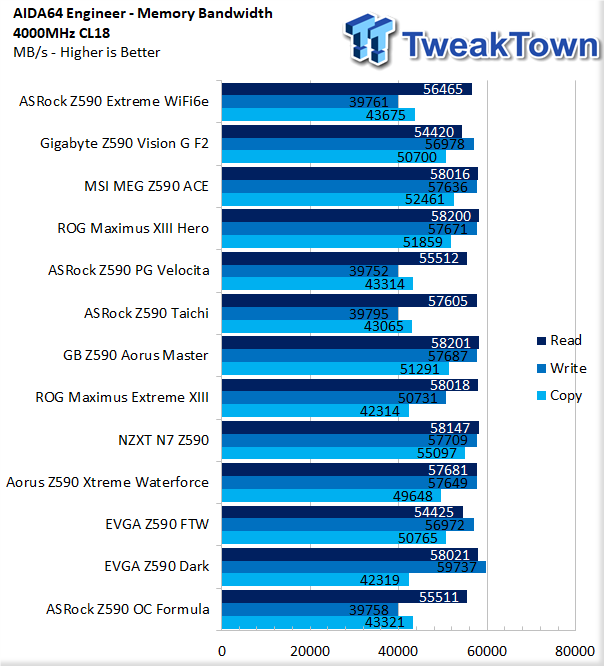
Memory bandwidth topped 58K read, 59K write, and 42K for copy.
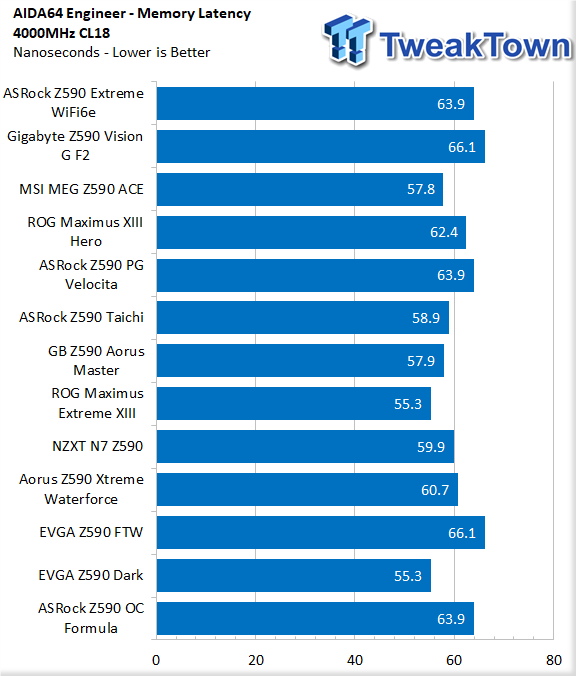
Memory Latency came in at 55.3 seconds.
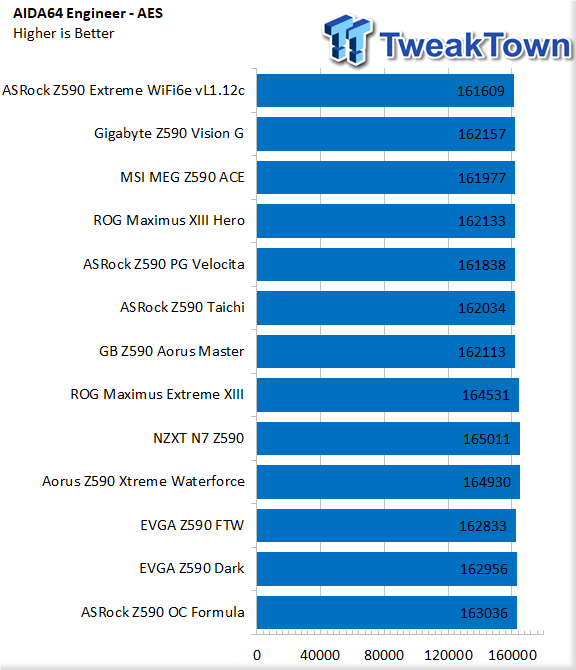
In AES, results come in at 162956 for the Xtreme.
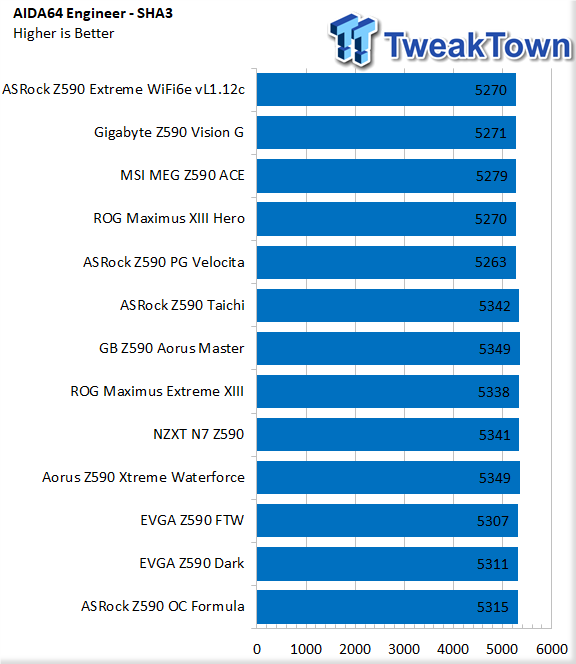
SHA3 showed 5311, right in line with other platforms.
PCMark10 and PugetSystems Benchmarks
PCMark 10
PCMark is a benchmark from UL and tests various workload types to represent typical workloads for a PC. Everything from video conferencing, image import, and editing, along with 3D rendering, are tested.
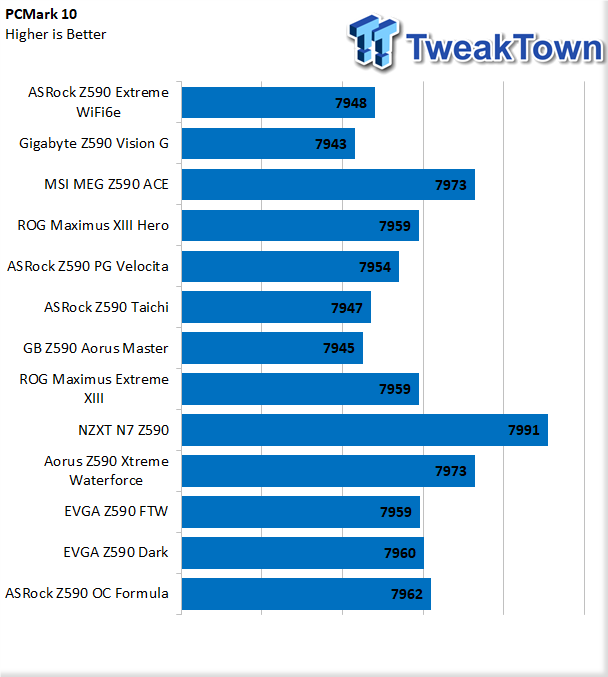
PCMark testing gave us a score of 7960 overall.
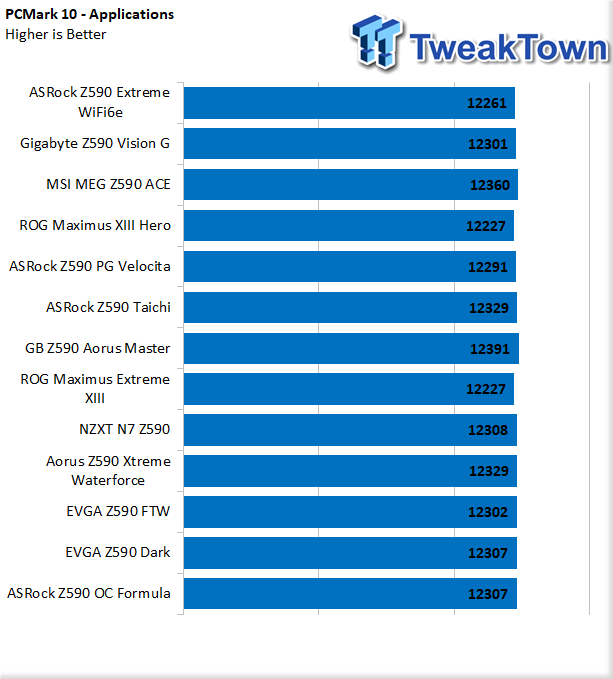
Application testing showed an overall score of 12307.
PugetBench
PugetBench comes from the fantastic people over at Puget Systems that have done countless hours and years benchmarking hardware. For our testing, we will utilize their Davinci Resolve, Photoshop, and Lightroom benchmarks, you can look into them more here.
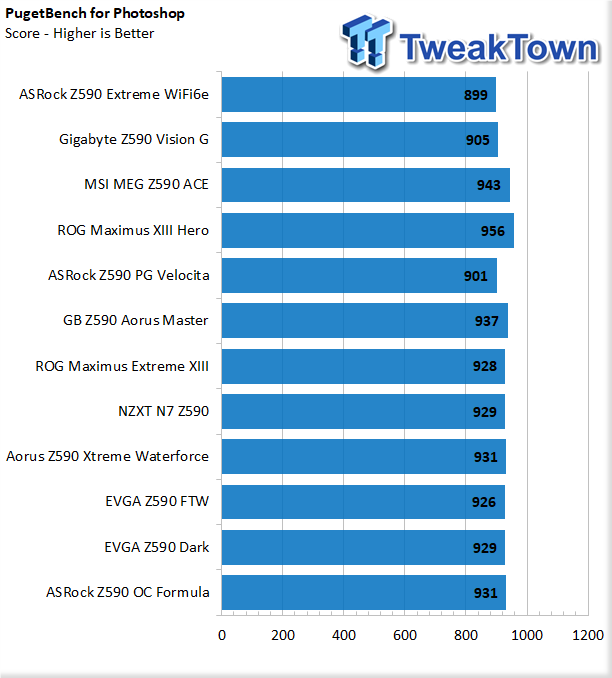
Puget for Photoshop ended with a score of 929.
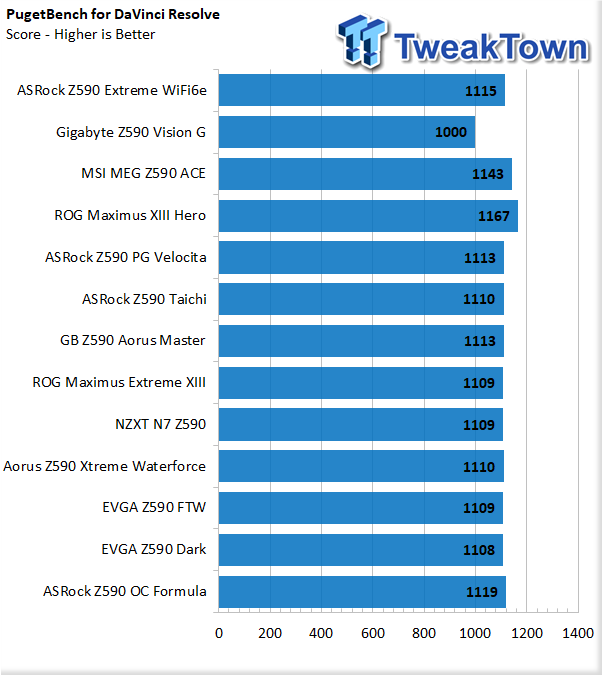
Davinci Resolve gave us a score of 1108.
Microsoft Flight Simulator
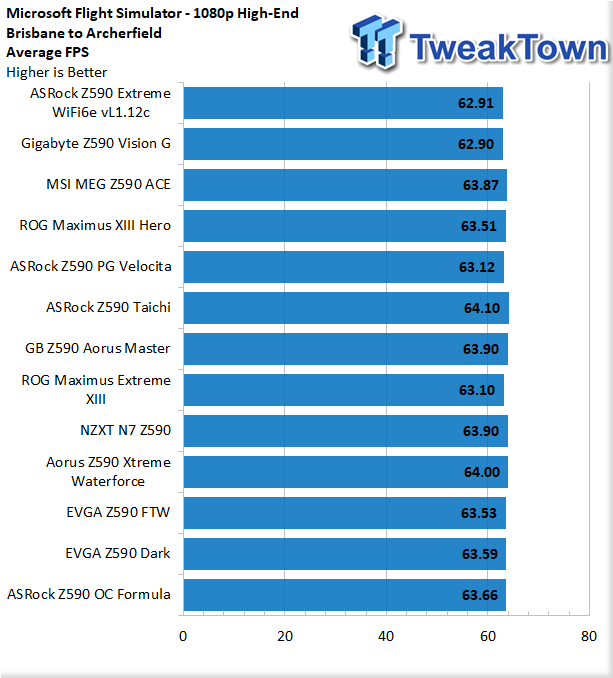
Comparing the Z590 Dark to the rest of our charts, we are right on par near 64FPS in testing.
System I/O Benchmarks
Storage with CrystalDiskMark
Storage tests are all handled by our Sabrent Rocket Plus NVMe 4.0 SSD. Secondary storage tests are conducted with our WD_Black P50 SSD.
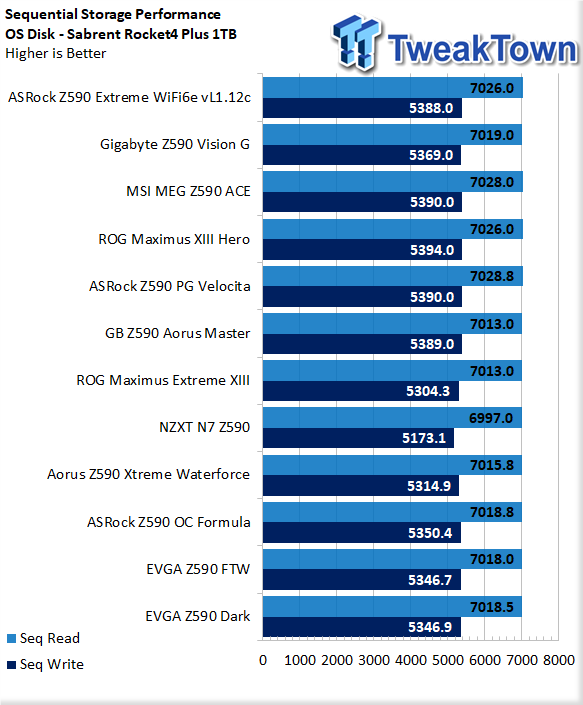
Storage testing showed 7018 MB/s reads, and 5346 MB/s write.
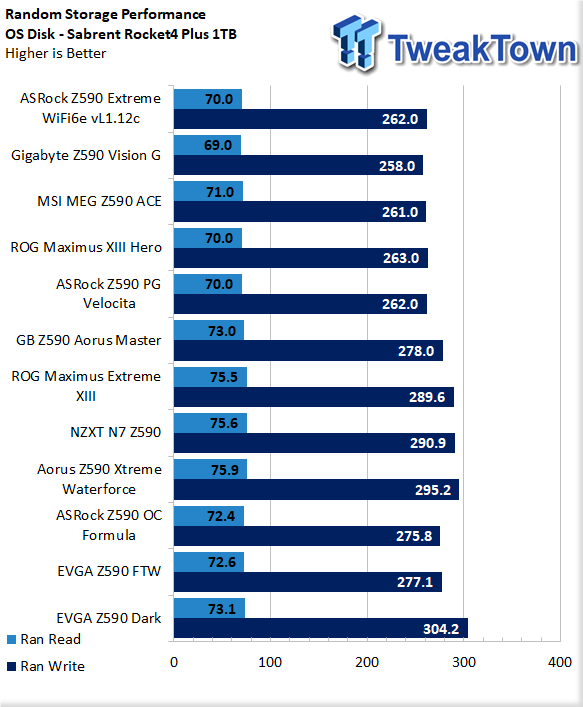
Q1 Random showed 73 MB/s reads, and 304 MB/s write.
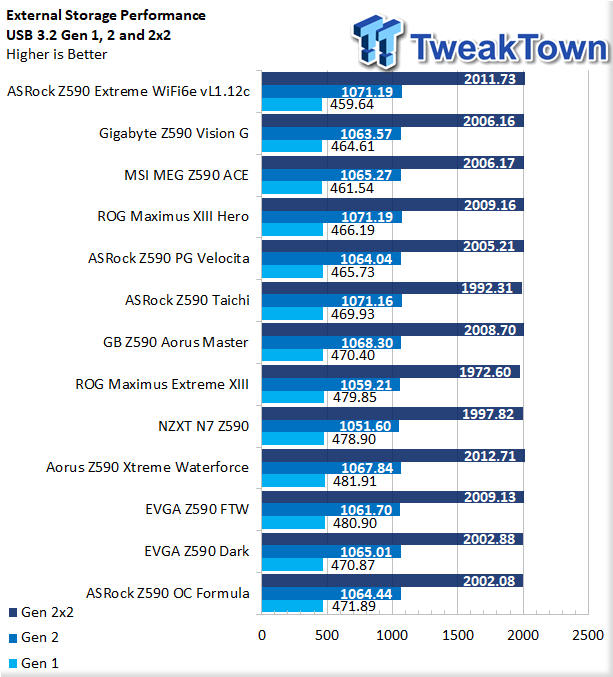
In our external storage testing, we see 470 MB/s from Gen 1, 1065 MB/s from Gen 2, and 2002 MB/s from Gen 2x2.
Audio - Dynamic Range
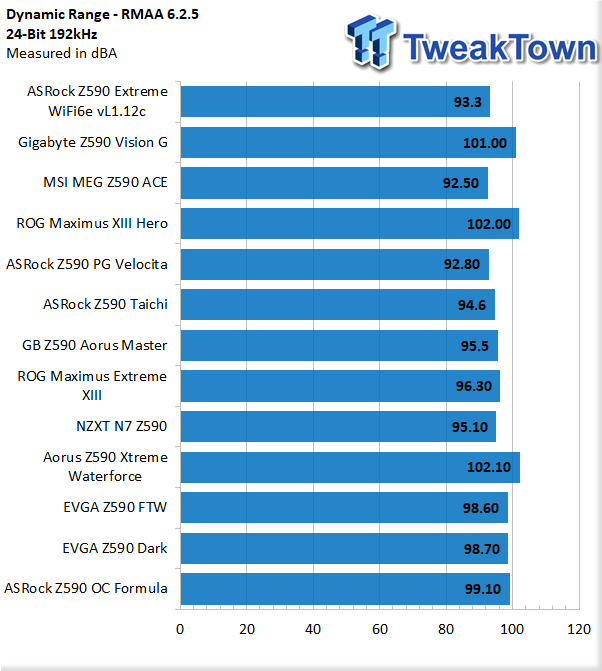
Testing audio, we set up RMAA with a 3.5mm cable from the line-in to speaker out (green to blue) and set both to 24Bit 192KHz. The Z590 Dark landed at 98.7dBA.
Networking
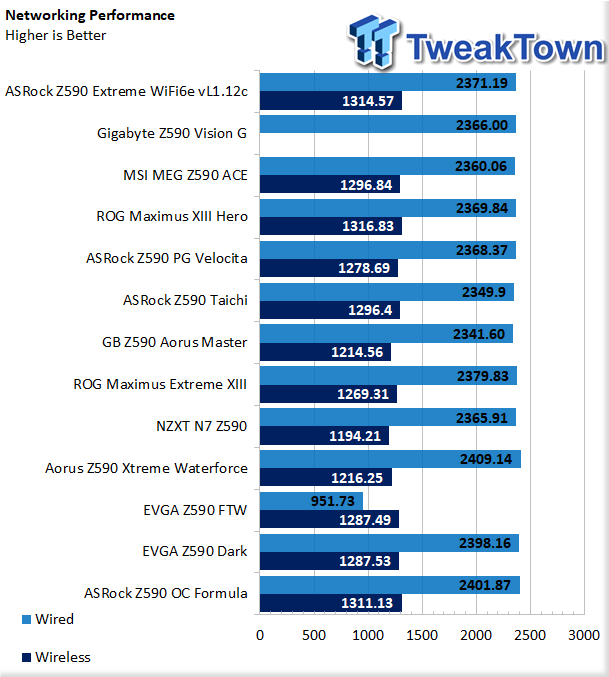
Networking has us testing both 2.5Gbe and Wi-Fi 6. Wired pulled 2398Mbps while Wi-Fi grabbed 1287Mbps.
Power, Thermals and Final Thoughts
Power Consumption
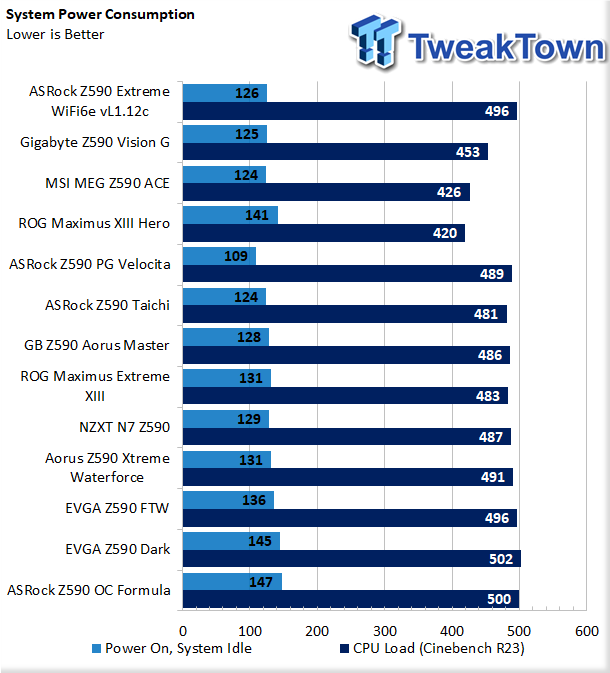
Wrapping up testing, we saw a system power draw of 145 watts at idle, 502 watts full load with R23.
Thermals
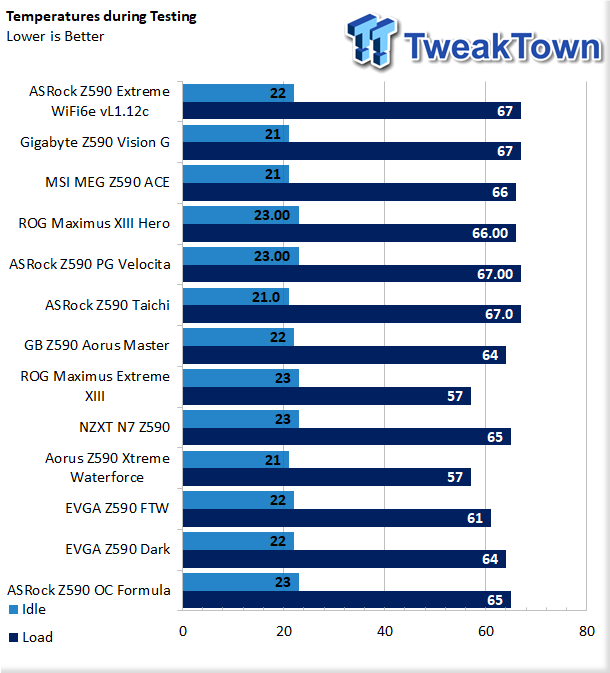
Temperatures during testing reached a peak of 64c while idle was at 22c.
Looking at our thermal image, much of the board's heat does come from the VRM area, peaking at 38c.
Final Thoughts
We have now had two of the four enthusiast OC boards come through with plans in place to get the last two before we wrap our coverage of Z590. That being said, EVGA has done a remarkable job on the Z590 Dark thinking outside of the box in motherboard design by grouping all power connections together and attention to detail with all connections being laid flat on their side for a cleaner look when installed in a chassis and less stress on cable connections overall.
Adding to this, there isn't a better-looking motherboard on the market for Z590; the mix of matte black and copper is in a way nostalgic as we don't typically see bare copper on a board anymore.
Board performance was right with the pack as expected, but I did take memory overclocking for a run on this board. Our Toughram XG 4000MHz kit, which we expect to be Hynix DJR did manage to reach 5100MHz at 1.6v without touching timings. This moved our memory throughput up to 74K in AIDA64, a sizable bump.
What We Like
Design: Best overall design, robust power for OC.
Connectivity: Full compliment of USB, SATA and M.2.
Price: $599 is in-line with enthusiast Z590 platforms.
What Could Be Better
No complaints









 Add Category
Add Category